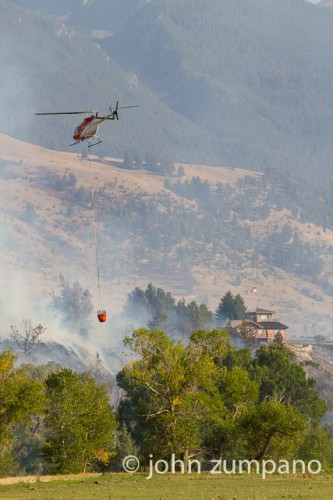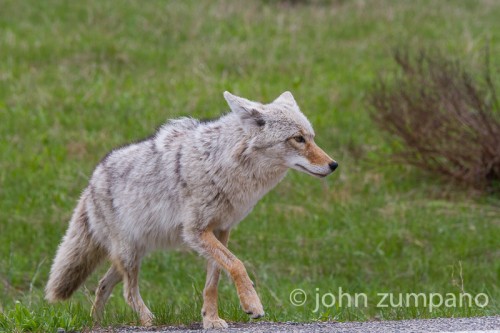…and the Trains Roll By……
Livingston is a railroad town, always was, since it sits on the eastern edge of the Rocky Mountains. The right place to make up trains to go west, which will need more power to cross the mountain passes, or go east with much less, since it is largely downhill. When I was a kid, Livingston was one of two places on the line set up to do the heavy work of rebuilding the giant locomotives–originally coal-powered steam engines and then diesel-electrics. The giant buildings with their heavy cranes and machine shops still stand, but other than a bit of work on railroad cars not much is done here any more. The railroad workers union was crushed long ago, and these days it seems the whole town lives on fly fishermen, or, when the year is bad for fly fishing, the moans all say so. For some reason the change from robust railroad town to a clot of folks peddling feathers and guided float trips seems a bit off to me, and puts me in mind of a story about the great Scribner’s editor Maxwell Perkins. A book needed to come out with some haste, and so a roomful of editors and other brainy folk sent for the head printer–in those days publishers had their own printing plants–who came into the room full of three-piece suits wearing his ink-stained shop apron. He was asked if it was possible to print this book with some dispatch. The printer said “yes, of course we can” and went back to his basement and his presses. Perkins looked round the table. “Why is it,”he said,”that when Mister Smith leaves we all look so ashamed of ourselves?” I am old enough to remember what Livingston was back in the late Fifties and early Sixties–a fun place where a young feller escaped from the dull and orderly drills of poor Bozeman, over the hill, could find glasses of beer in the bars, jazz, and a room at the old Murray Hotel for a buck and a half a night. If the young feller minded his manners he could have a very good time indeed, but I also knew that if I tried to order whiskey or got loud I would be drop-kicked through the doors and into the waiting clench of the Livingston cops. I loved the place and came often and slithered quietly and carefully here and there, suspecting that everyone knew what I was and where I came from, just a pissant faculty brat from over the hill. I didn’t know then any of the darker truths about the town, and the darkest for me is this: that the life expectancy for a white male in Bozeman, where I grew up was at that time seventy-two. In Livingston it was fifty-one. The railroad workers, whether in the shops or on the road itself, lived and worked in a stew of petrochemicals and a dusty air of asbestos particles, their wives washed their clothes and came down with environmental cancers, and when I came back here over twenty years ago now I was struck by how many of the old Livingston people I knew had had children die young of childhood cancers. It was a different world from the one I knew and I thought back then it was all good. But it was not. The same old story, about the true cost of industry , and back then no one seemed to care. The union didn’t–it had good jobs at good pay and with good benefits. The corporations didn’t, they were concerned with profits and shareholders. There were plenty of people who did know about it, they had to, the state government had the mortality reports. One political sort who worked for a governor thirty-odd years ago told me that the two places with such starkly low life expectancies were Livingston and the eastern Montana counties where tough cowboys used tougher pesticides and ignored all of the precautions stated as essential in handling the stuff. But there seemed to be no interest in that number, in the twenty-one years of life itself that working for the railroad cost…….


